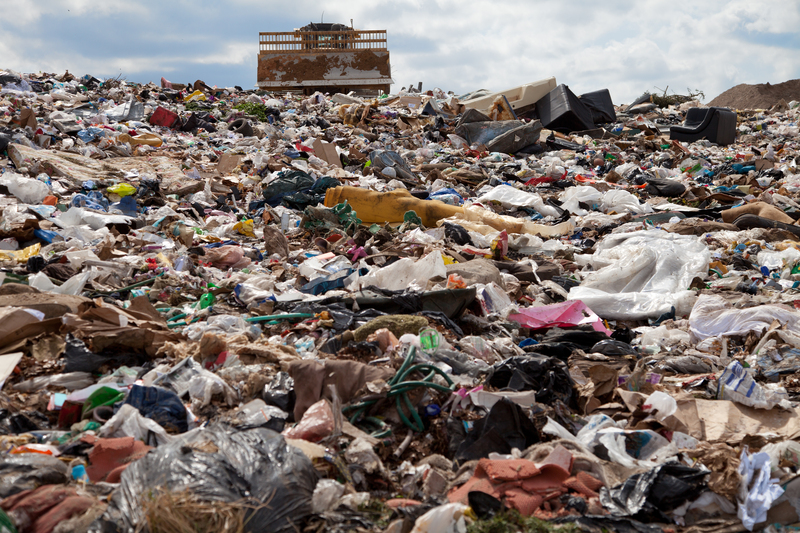Green Disposal Techniques for Restaurants
Posted on 28/12/2024
As environmental concerns rise, restaurants across the globe are actively seeking sustainable methods for waste disposal. Adopting eco-friendly waste management practices not only aids in environmental conservation but can also enhance a restaurant's reputation and operational efficiency.
Importance of Green Disposal in the Restaurant Industry
The foodservice industry is a significant contributor to global waste, including food scraps, packaging materials, and cooking oils. Effective waste management is crucial for reducing the environmental footprint of these establishments. Green disposal techniques ensure that waste is handled in an eco-friendly manner, minimizing harm to natural ecosystems and promoting sustainability.

Comprehensive Recycling Programs
Implementing a comprehensive recycling program is one of the fundamental steps in green disposal. Such programs segregate recyclable materials like paper, plastic, glass, and metal from general waste, diverting significant amounts of waste from landfills. Recycling helps in conserving natural resources, reducing energy consumption, and lowering greenhouse gas emissions.
Composting Organic Waste
Composting is a highly effective green disposal technique for organic waste, including food scraps and garden waste. By composting, restaurants can convert organic waste into nutrient-rich soil amendments that can be used in gardens, parks, or even sold commercially. Not only does this reduce the volume of waste going to landfills, but it also helps in closing the nutrient loop in agricultural cycles.
Steps to Implement Composting
1. Segregation: Restaurants should have dedicated bins for organic waste to ensure effective composting.
2. Partnering with Composting Facilities: For those who cannot compost on-site, collaborating with local composting facilities can be beneficial.
3. Staff Training: Employees should be trained on the importance of composting and how to segregate waste appropriately.
Utilizing Biodegradable and Compostable Packaging
Switching to biodegradable and compostable packaging materials significantly reduces the environmental impact of disposable items. These materials break down naturally and do not contribute to long-term pollution. Restaurants can opt for packaging made from plant-based materials like cornstarch, bagasse (sugarcane fiber), and PLA (polylactic acid).
Reducing Food Waste
Reducing food waste is essential for achieving sustainability in the foodservice industry. Strategies include:
Portion Control
Adjusting portion sizes to match customer demand can help minimize food waste. Offering different portion sizes for various appetites is an effective way to cater to diverse customer needs while reducing leftovers.
Menu Planning
Designing menus based on the seasonality and availability of local ingredients reduces excess inventory and spoilage. Additionally, featuring daily specials can help utilize perishable items before they spoil.
Donating Surplus Food
Partnering with local food banks and shelters to donate excess food can combat food insecurity and reduce waste simultaneously. It's a win-win solution that supports the community while promoting sustainability.
Efficient Oil Disposal
Culinary oils can pose environmental hazards if not disposed of correctly. Here are some green disposal methods for used cooking oil:
Recycling Cooking Oil
Many recycling centers and companies specialize in converting used cooking oil into biodiesel, a sustainable alternative to conventional fuels. Restaurants can partner with these entities for regular oil collection and recycling.
Using Oil Separators
Oil separators in kitchen drainage systems help prevent oils from entering the wastewater system, reducing water pollution. These devices capture and allow proper disposal of oils, fats, and grease.

Benefits of Implementing Green Disposal Techniques
The advantages of adopting green disposal techniques extend beyond environmental conservation. These benefits include:
Cost Savings
Effective waste management can lead to significant cost savings. Reducing waste output lowers disposal fees, and recycling and composting can cut down on purchasing costs for certain materials and supplies.
Enhanced Reputation
Consumers are increasingly drawn to businesses that demonstrate a commitment to sustainability. Implementing green practices can enhance a restaurant's image, attracting eco-conscious customers and fostering brand loyalty.
Regulatory Compliance
Many regions have stringent regulations regarding waste management. By adopting green disposal techniques, restaurants can ensure compliance with local laws and avoid potential fines or legal issues.
Latest Posts
Enhance Business Efficiency with Waste Collection

